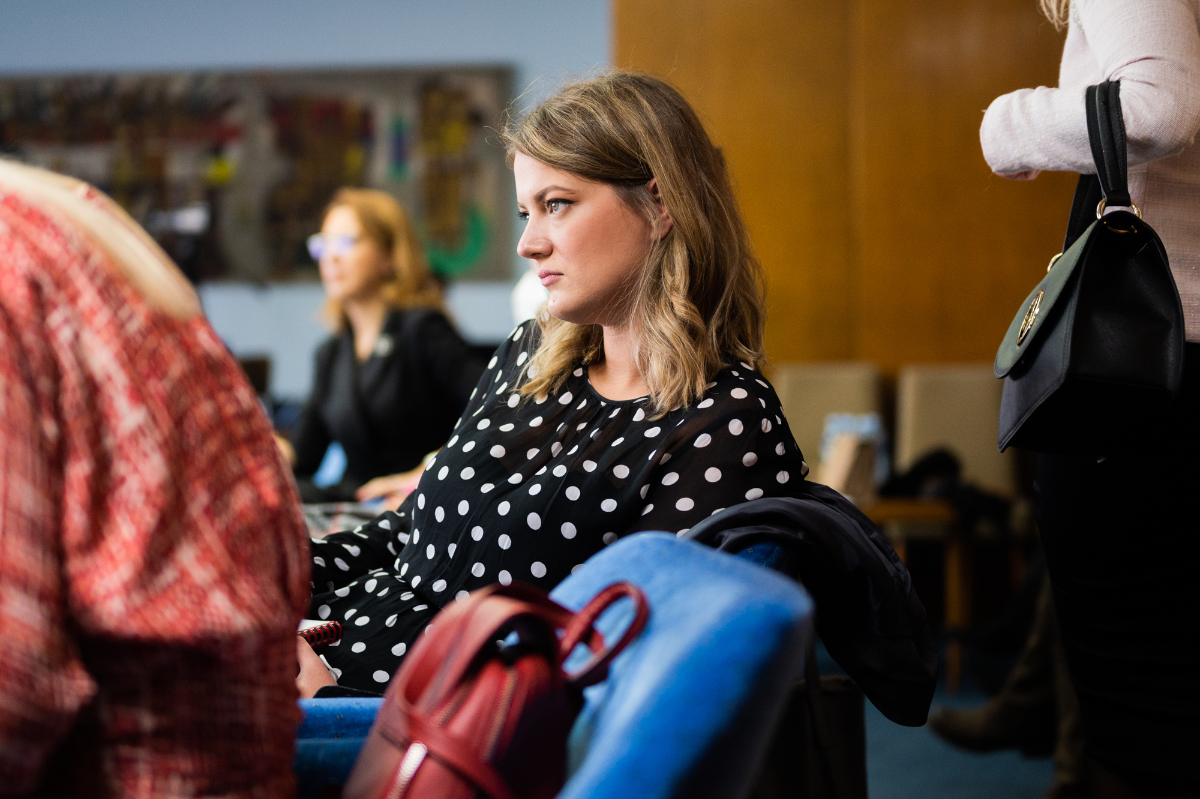Interview: “For the first time in Serbia, shelters may be able to provide an integrated victim-oriented approach”
Date:

To provide a victim-oriented approach in safe houses for women and girls victims of violence in Serbia, the non-governmental organization Atina developed qualitative standards for shelters, a first in the country. While existing shelter standards focused on infrastructure and the number of employees, the new standards emphasize the need to improve a victim’s quality of life as soon as she enters the shelter. Specifically, the new standards focus on responding to victim’s needs, such as with psychological counselling, children’s support and the protection of personal data. The standards, created with support from the regional programme on ending violence against women in the Western Balkans “Implementing Norms, Changing Minds,” funded by the European Union, will be adopted by Serbia’s Ministry of Labour, Employment, Veterans and Social Affairs. Andrijana Radoičić Nedeljković, Atina’s Coordinator of the direct support team for women victims of human trafficking and women victims of violence, spoke to UN Women about these new standards.
These new standards were developed following an assessment. What did the assessment reveal about the needs and challenges of shelter beneficiaries and employees?
Challenges for women victims of violence were mostly related to access and safety. The assessment showed that women with disabilities are often unable to use shelter’s full potential. And while the service is officially available to Roma, migrant and refugee, as well as LGBTQI+ women, in reality, they are often denied access, while those with access are often denied basic rights, face systemic discrimination, are refused translation, etc.
Employees are often uncertain what to do, as there are no specialized standards for shelter/safe house services, so professionals are left to act on their own. Some of the challenges cited through the research relate to employee safety, lack of systemic and supervisory support, as well as burnout syndrome, which can be associated with insufficient training of personnel.
With new standards, we tried to respond to all these challenges, and for the first time in Serbia, shelters may be able provide an integrated victim-oriented approach.
What is needed to adequately care for and support women and girls who are victims of abuse, violence and human trafficking?
Victims of sexual violence can access safe houses, however, as they are most often referred because of other forms of violence from their partners, so sexual violence remains “neglected”. The reason for this can be deep-rooted prejudice. Also, recent legislation doesn’t recognize marital rape or sexual violence.
Even today, prosecuting sexual violence is legally possible, but there are few verdicts. Moreover, research indicates that professionals implementing shelter services are not sufficiently trained and prepared to work with the trauma caused by sexual violence, so they often consciously choose to avoid causing more damage to the victim. As a result, women cannot even speak about sexual violence or receive adequate psychological support.
Therefore, the new standards state that it is necessary to empower shelter employees via specialized training and education, and recognize the need for psychological counselling and psychotherapy for women victims in shelters, which now only happens through personal employee motivation.
Current standards do not include support for children sheltered with their mothers. How is this addressed in the new standards?
Children who witness violence are recognized as victims of violence according to international standards. Unfortunately, in Serbia, there is still discussion about this. Contact with the other parent is often assessed through the right of the parent to see the child, rather than the right of the child to be protected from violence. In this regard, the new standards specifically define principles and activities for working with children – individual and group work and specific parenting support. In working with children, the same principles should be applied as with women, of course in an age-appropriate manner – trust, confidentiality, participation, and providing emotional and psychological support to overcome trauma.
The new standards also introduce mutual supervision between employees in shelters. Why is this important?
Existing standards do not envisage supervisory support for shelter employees, regardless of their constant exposure to trauma and stories of violence. Meantime, the preamble of these new standards highlights mutual supervision and interviews as an indispensable part of working in shelters. This implies that employees organize themselves independently and provide mutual support in dealing with challenging situations, to prevent burnout and to support young and less-experienced professionals.
In addition to the quality standards, Rules on Procedure in Emergency Situations in Shelters for Women and Children, Survivors of Domestic Violence were drafted, which deal with emergency situations. How will these rules improve the work of shelters?
The shelters should be able to react and ensure the sustainability and availability of the service despite emergencies or other crisis situations, which was not the case during the COVID-19 outbreak. These rules seek to ensure shelter’s availability and quality. The goal is to ensure that this service becomes recognized as a separate service within the social protection system based entirely on an integrated victim-oriented approach.